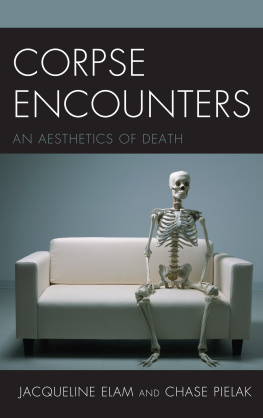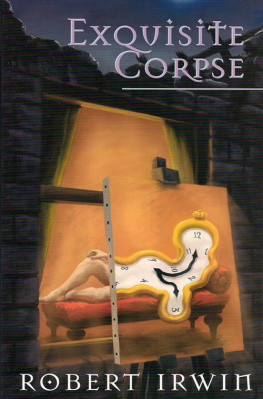Janwillem De Wetering - The Japanese Corpse
Here you can read online Janwillem De Wetering - The Japanese Corpse full text of the book (entire story) in english for free. Download pdf and epub, get meaning, cover and reviews about this ebook. genre: Detective and thriller. Description of the work, (preface) as well as reviews are available. Best literature library LitArk.com created for fans of good reading and offers a wide selection of genres:
Romance novel
Science fiction
Adventure
Detective
Science
History
Home and family
Prose
Art
Politics
Computer
Non-fiction
Religion
Business
Children
Humor
Choose a favorite category and find really read worthwhile books. Enjoy immersion in the world of imagination, feel the emotions of the characters or learn something new for yourself, make an fascinating discovery.

- Book:The Japanese Corpse
- Author:
- Genre:
- Rating:3 / 5
- Favourites:Add to favourites
- Your mark:
- 60
- 1
- 2
- 3
- 4
- 5
The Japanese Corpse: summary, description and annotation
We offer to read an annotation, description, summary or preface (depends on what the author of the book "The Japanese Corpse" wrote himself). If you haven't found the necessary information about the book — write in the comments, we will try to find it.
Janwillem De Wetering: author's other books
Who wrote The Japanese Corpse? Find out the surname, the name of the author of the book and a list of all author's works by series.
The Japanese Corpse — read online for free the complete book (whole text) full work
Below is the text of the book, divided by pages. System saving the place of the last page read, allows you to conveniently read the book "The Japanese Corpse" online for free, without having to search again every time where you left off. Put a bookmark, and you can go to the page where you finished reading at any time.
Font size:
Interval:
Bookmark:
Janwillem Van De Wetering
The Japanese Corpse
\\\\\ 1 /////
"And you think something happened" Detective-Sergeant de Gier said hesitatingly, stressing the word "happened."
"Yes," the young woman said.
Detective-Adjutant Grijpstra* cleared his throat and looked at the ceiling of the white and gray room which housed part of Amsterdam's CID, or the "murder brigade," as the department was known by other branches which filled the large ugly building of Police Headquarters. The ceiling had cracked recently and Grijpstra eyed the crack with interest. It seemed to have grown a little again. He was wondering if it would ever crack right through because if it did he might be able to look up the skirts of the typists upstairs. He grunted. There would still be a wooden subfloor and some thick linoleum to block his view, and typists wore slacks nowadays, like the young woman who was sitting opposite de Gier's desk, in the low plastic chair reserved for visitors. The young woman's slacks were made out of velvet, and shone. Her blouse glittered. Her long black hair glowed. A very good-looking young woman, Grijpstra thought, too good-looking perhaps, and a bit overdressed. A prostitute perhaps?
De Gier had been thinking along the same lines.
"What's your profession, Miss Andrews?" he asked noncommittally and pressed his ballpoint. His notebook was on the desk.
"I am a hostess in a Japanese restaurant," Miss Andrews said in slow careful Dutch with only a hint of an accent, and smiled nervously. Capped teeth, de Gier thought. Slanting eyes. Black hair. Skin white, with a tinge of ivory. Mother must be Japanese, and father English or American. American probably.
"And your nationality?"
"American. I have a work permit." She opened her bag, a small elegant bag made out of black cloth with a dragon embroidered on its side. The dragon had curled its body and appeared to be sniffing its tail. She produced a small card and put it on de Gier's desk. He studied it and pushed it back.
"Joanne Andrews," he said aloud. "And you think something happened to your boyfriend, Mr. Kikuji Nagai. Nagai is the surname, that's correct, isn't it?"
"Yes."
De Gier raised his right shoulder and lowered it carefully again. His lips twitched. He had spent three hours practicing judo throws the night before and a muscle had been twisted or perhaps even torn. His ankle hurt as well. He was in bad shape. He was getting old. He remembered the birthday party his colleagues had given him the week before.
Forty years old. He had come in unsuspectingly that morning and his chair had been festooned with bright red and glaring yellow balloons; forty balloons. There had been a cardboard shield on the whitewashed wall with the figure 40 set in a frame of curly golden garlands. The constable-detectives of the murder brigade had lined the walls and burst out into song and he had been given a pair of handcuffs to replace the pair which he had managed to lose during a rooftop hunt. The handcuffs had been parceled in gilt paper decorated with a red bow. As the constables sang Grijpstra had played his drums, artfully extricating a melody out of the many gadgets that he had, during the last few years, attached to the old set, which had one day miraculously appeared in their room, probably stored there temporarily by the Lost Objects Department. The set had never been allowed to leave the room again, for Grijpstra had played drums in the school band once and the instruments had inspired him. They had inspired de Gier too, for de Gier played flute, a small flute which he carried in his inside pocket, an instrument which emitted shrill tones, blending remarkably well with Grijpstra's improvisations. But de Gier hadn't played his flute the morning of his birthday. He had been standing in the middle of the room, feeling lost and ridiculous while the constables sang and Grijpstra hit his bells and cymbals and the small wooden hollow objects which made such piercing, stunning sounds.
It had been a special song, composed by Grijpstra and the constables had practiced it many times, for Grijpstra believed in doing things as well as possible. At least three of the constables were trained singers and their voices had made de Gier's spine tingle. The tune was baroque and allowed for solos and choir. It had lasted about ten minutes, and for ten minutes de Gier had felt silly and thrilled simultaneously. But Grijpstra hadn't wanted to destroy his friend and colleague completely, and the sergeant had been given a heavy air pistol and told to shoot at the balloons so that he could release his rage as they popped one by one.
And now the scene had changed again. It seemed Grijpstra and he were back in business, after several weeks of sitting around, reading files and thinking of ways of making others pay for their coffee. Miss Andrews thought that something had happened to her boyfriend, the man who had promised to marry her. He had disappeared, she said. De Gier raised his shoulder again; the pain wasn't so bad now. Maybe the muscle wasn't torn after all. He sighed and studied his visitor. The girl was staring at him but she didn't see the handsome sergeant in his tailor-made blue denim suit, adorned with a silk scarf tucked loosely into his open shirt, and she didn't notice his thick brown hair, immaculately cut by the fat old homosexual hairdresser on the next canal, who charged top rates to his clientele of actors and artists. She didn't even notice the strong tanned hands that were playing with the ballpoint and the notebook. All Joanne Andrews saw was her own fear: the crumpled dead body of her boyfriend.
Grijpstra stirred in his chair. He had stopped looking at the crack in the ceiling and was changing his position, making the springs of his revolving chair squeak. His heavy body came forward a little and his hand rubbed the short gray bristly hairs on his large skull.
"Now, miss," Grijpstra said pleasantly, "maybe there's no reason to worry. He has only been gone two days, hasn't he? And he is a businessman you say, an art dealer. Perhaps he suddenly got a tip and went away for a few days. Didn't you say that he travels a lot? Selling art from the Far East to European dealers? Maybe he is in London and or Paris and hasn't got time to telephone."
"No," she said, trying to control her voice. "He is very reliable. And we had a date, day before yesterday. He was going to pick me up at the restaurant and take me to a nightclub. That night a young jazz pianist was scheduled to play at the club, just for one night, and Kikuji really wanted to hear him play. He had only heard him on records and the artist is supposed to be very good and Kikuji wanted to see him play. He was looking forward to it. But he never came. I went to the club alone and he wasn't there. I checked at his hotel and his luggage was in his room. He had gone out in the afternoon and he had told the clerk at the desk that he would be back for dinner. He had an appointment with a buyer and the buyer came but Kikuji wasn't there. It was an important appointment; the buyer was interested in some very expensive old sculpture which Kikuji had in his room. The sculpture was still there."
"Well, well," Grijpstra said.
"You must help me," Joanne Andrews said. "You really must help me. I brought a photograph, here."
She put it on Grijpstra's desk and de Gier got up and walked over to look at it. It was a color photograph and showed a fairly tall, thin-looking Japanese, slouched in a cane chair on the sidewalk in front of a cafe\ A narrow face under a crew cut, peering anxiously at the lens. He was looking over his glasses which had slid to the end of the slightly hooked nose. A stack of pocketbooks and a camera in a leather case had been dropped next to the chair. The telephone on de Gier's desk was ringing and he excused himself and picked it up.
Font size:
Interval:
Bookmark:
Similar books «The Japanese Corpse»
Look at similar books to The Japanese Corpse. We have selected literature similar in name and meaning in the hope of providing readers with more options to find new, interesting, not yet read works.
Discussion, reviews of the book The Japanese Corpse and just readers' own opinions. Leave your comments, write what you think about the work, its meaning or the main characters. Specify what exactly you liked and what you didn't like, and why you think so.


